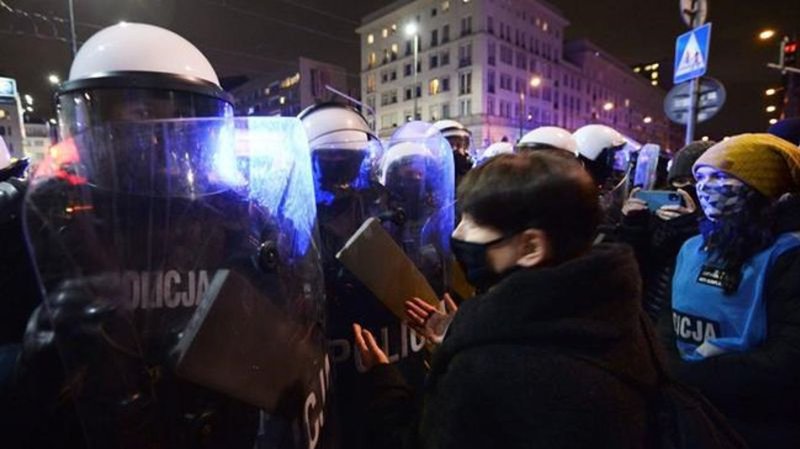
Poland: Marches oppose abortion restriction, police violence
WARSAW, Poland — Protesters marched in Warsaw and other Polish cities Saturday against an attempt to restrict abortion rights and the police violence that occurred in response to other recent protests over reproductive rights.
In Warsaw, protesters “renamed” a downtown square where they have often met recently to Women’s Rights Roundabout. An activist climbed onto a ladder on a van to hang a new street sign over the official one reading Roman Dmowski Roundabout.
Women’s rights activists have been calling on city authorities in Poland’s capital to approve a formal name change. They say it would honour a movement for equality rather than Dmowski, a statesman who had a key role in helping Poland regain national independence in 1918, but also an anti-Semite.
The protests in Krakow, Gdansk and other cities on Saturday were planned to coincide with Polish women gaining the right to vote 102 years ago. The events were organized under the slogan, “In the name of mother, daughter, sister.”


